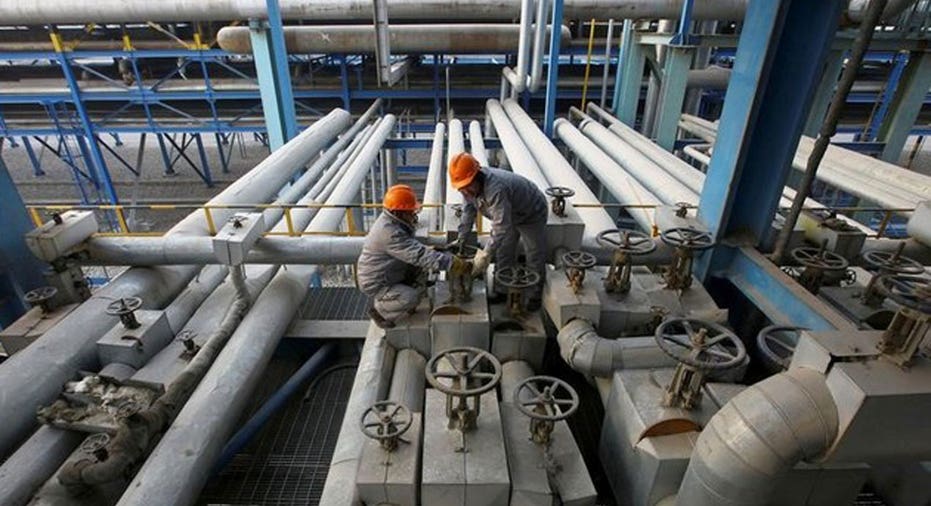Oil steadies to trade higher after losses

(Reuters)
Oil prices rose on Thursday, steadying after losses over the past two days from a surprise increase in U.S. crude inventories and renewed concerns over trade friction between the U.S. and China.
Brent crude futures were up 16 cents, or 0.2 percent, at $72.55 a barrel by 0503 GMT, after dropping 2.5 percent on Wednesday.
U.S. West Texas Intermediate (WTI) crude futures increased by 6 cents, or 0.1 percent, to $67.72 a barrel. They fell 1.6 percent in the previous session.
Oil prices are feeling the effects of ongoing tensions over global trade, with markets concerned about any slowdown in growth around the world.
"A clear definition around the macros is what the market is looking for and until we get that, it is likely to be volatile in the range," said Jonathan Barratt, chief investment officer at Ayers Alliance in Sydney.
U.S. President Donald Trump has sought to ratchet up pressure on China for trade concessions by proposing a higher 25 percent tariff on $200 billion worth of Chinese imports.
China said it would hit back if the United States takes further steps on trade.
Brent prices fell more than 6 percent in June and U.S. crude slumped about 7 percent, the biggest monthly declines for both benchmarks since July 2016.
Tensions between the U.S. and Iran are also supporting the market, Barratt said.
The United States believes Iran is preparing to carry out a major exercise in the Gulf in the coming days, apparently moving up the timing of annual drills amid heightened tensions with Washington, U.S. officials told Reuters on Wednesday.
U.S. President Donald Trump's decision to pull out of an international nuclear deal and reimpose sanctions on Iran has angered Tehran. Senior Iranian officials have warned the country would not easily yield to a renewed U.S. campaign to strangle Iran's vital oil exports.
"There are a lot of escalation points that could occur very quickly and that worries me," Barratt said.
U.S. crude inventories rose 3.8 million barrels last week as imports jumped, the government's Energy Information Administration said. Analysts polled by Reuters had expected a decline of 2.8 million barrels.
However, there were some bullish elements in the report. Gasoline stocks declined by 2.5 million barrels, while crude stocks at the Cushing, Oklahoma, delivery hub for WTI futures fell 1.3 million barrels, EIA data showed.
(Reporting by Aaron Sheldrick; editing by Eric Meijer and Richard Pullin)



















